معرفی و دانلود نسخه انگلیسی کتاب پس از تاریکی (بعد از تاریکی)
After Dark
نویسنده:
هاروکی موراکامی
Haruki Murakami
درباره کتاب پس از تاریکی (After Dark) نوشته هاروکی موراکامی :
تنهایی آدم موضوعی محوری در آثار هاروکی موراکامی است و در کتاب بعد از تاریکی هم بار دیگر به این مفهوم میپردازد. موراکامی در این داستان مخاطب را به گردشی شبانه در شهر توکیو میبرد و فضای سردی را روایت میکند که شخصیت اصلی آن دختری است که تمام زندگیاش را صرف درس خواندن کرده تا سایر ضعفهایش را بپوشاند.
بعد از تاریکی (After Dark) شاید جزء محدود آثار هاروکی موراکامی (Haruki Murakami) است که با زبان روایی ساده و گیرا و واقع گرایانه مباحث روانشناسانه و جامعهشناسانه زندگی جوانهای امروز ژاپن، بهخصوص دخترها و زنان را بیان میکند.
ماری قهرمان اصلی داستان، دختری نوزده ساله است که برای رهایی از خانه و فرار از سایه خواهری که به خاطر زیبایی مورد توجه همه قرار دارد، شبها به بهانه مطالعه به رستورانی پناه میبرد. ماری، همیشه در مقایسه ظاهری خود با خواهرش، خودش را دختری معمولی و زشت میداند که ارزش مورد توجه بودن را ندارد. برای پر کردن این حس دوستداشتنی نبودن، ساعتها و ساعتها خودش را غرق در مطالعه درسهای دانشگاه میکند!
بعد از تاریکی داستان یک شب ظاهرا معمولی اما بسیار مهم از زندگی ماریست که از دقایقی قبل از نیمهشب شروع و تا دقایقی قبل از شروع روز و ورودش به روشنایی تمام و به پایان میرسد. شبی که ماری ناخواسته وارد ماجراهایی شده و با دوستان جدیدی آشنا میشود که این آشنایی و همراهی در طول داستان منجر به شناخت جدیدی از خودش میشود. حس ارزشمند و صاحب تفکر بودن به ماری شناختی ارزشی ورای زیبایی ظاهری به خودش میدهد. با پایان داستان این دختر با هویتی جدید از تاریکی به روشنایی حقیقی نسبت به زندگی خود قدم برداشته و روز جدید را با هویتی جدید آغاز میکند.
معرفی کتاب های جدید در پیج اینستاگرام بیبلیوفایل
درباره هاروکی موراکامی:
هاروکی موراکامی یکی از نویسندگان مشهور و محبوب در سراسر جهان، بهویژه در ایران است. او یکی از نویسندههایی است که کتابهایش در لیست پرفروشهای جهان است و آثار او به بیش از چهل و دو زبان در سراسر جهان ترجمه شده است. جایزه «فرانتس کافکا» یکی از بزرگترین جوایزی است که موراکامی تاکنون در میان جوایز دیگرش دریافت کرده است. کتاب «گوسفند وحشی» از آثار اوست که برنده جایزه ادبی «نوما» شده است. او در سال ۱۹۴۹ در کیوتو متولد شد و از سی سالگی شروع به نوشتن کرد. در سراسر جهان موراکامی را بهواسطهی رمانها و داستانهای کوتاهش میشناسند که بیشتر آنها مرزی بین سوررئال و رئال دارند. موراکامی در دانشگاه تئاتر خواند اما به دلیل علاقهی زیادش به موسیقی یک باشگاه جاز راه اندازی کرد، جالب این است که او به دلیل علاقه بسیار زیادش به گربهها اسم آن باشگاه را «پیتر کت» میگذارد. بعد از کنار گذاشتن باشگاه، موراکامی از سن سیسالگی به طور حرفهای نویسندگی را شروع کرد و آدم کم حرفتری شد. موراکامی هیچوقت حاضر نشد مصاحبهای با رادیو یا تلویزیون داشته باشد. او علاوه بر نویسندگی در عرصهی ترجمه هم فعالیت کرده است. از داستانهای معروف او میتوان به «کجا ممکن است پیدایش کنم»، «کافکا در کرانه»، «وقتی از دو حرف میزنیم از چه حرف میزنیم»، «جنگل نروژی»، «سالشمار پرندهی کوکی»، «پس از تاریکی»، «رقص رقص رقص»، «سرزمین عجایب بی روح و پایان دنیا»، «فیل غیب میشود»، «بید نابینا، زن خفته»، «بعد از زلزله» و «زیر زمین» اشاره کرد. شکلگیری اولین رمان او یعنی «به آواز باد گوش بسپار» بعد از دیدن یک مسابقه بیسبال در ذهنش شکل گرفت.
در بخشهایی از کتاب پس از تاریکی میخوانیم:
اتاق تاریک است، اما چشمهایم بهتدریج به تاریکی عادت میکند. زن جوان و زیبایی روی تختخواب است. خواهر ماری، اِری. اِری آسای. بدون اینکه کسی به ما بگوید، میدانیم. موهای مشکیاش مانند سیل سیاه روی بالش پهن شده است.
اکنون میخواهیم در مورد او صحبت کنیم یا شاید باید بگوییم او را از دریچهای ببینیم. نقطه دیدمان به صورت دوربین معلق در هوا است که میتواند به تمام جهات بچرخد. در حال حاضر دوربین ما درست بالای تخت اِری نصب شده و حالت خواب او را نشان میدهد. زاویهمان مانند پلک زدن در فواصل گوناگون تغییر میکند.
هر قدر داد میزنم نان برشتهام را تا میتوانید تُرد کنید، یک دفعه هم نشده طبق دلخواهم عمل کنند. نمیتوانم بفهمم چرا. سر فرهنگ سختکوشی و تکنولوژی والا و اصول بازاریابی ژاپنی که رستورانهای زنجیرهییِ دنی همیشه دنبالش میکند چه آمده؟ ترد کردن نان برشته که کار مشکلی نیست، هست؟ خب، پس چرا نمیتوانند بکنند؟
به طرف تلویزیونی در کنج اتاق میچرخد و آرام آرام پیش میرود: تلویزیون کاملاً مربع مشکی سونی. صحنه تاریک است و مثل نیمۀ تاریک ماه مرده، اما دوربین انگار به نوعی حضور در آنجا پی برده ــ یـا شاید یک جور برات شدن باشد. ما بیحرف در این حضور یا پیش آگاهی با دوربین شریک میشویم و به پرده از نمای درشت زل میزنیم. چشم براه میمانیم. نفس در سینه حبس میکنیم و گوش میدهیم.
دادگاه مثل یک مجتمع سینمایی است. کنار در ورودی یک تابلو نصب کردهاند این هوا و آنجا چیزی مثل برنامۀ شروع فیلمها را نوشتهاند و تو یکی را بر میداری که برایت جالب به نظر میرسد و میروی و مینشینی و تماشا میکنی. هر کسی میتواند برود تو. فقط دوربین عکاسی و ضبط صوت مجاز نیست. خوراکی هم. مجاز هم نیستی حرف بزنی. بعلاوه صندلیها تو هم است و اگر چرت بزنی، پلیس دادگاه میآید سر وقتت. اما جای گِله نیست: ورود آزاد است.
تلویزیون روشن است. اِری با بلوز ـ شلوار پیژامه از توی صفحه به بیرون نگاه میکند. حلقۀ مویی روی پیشانیش افتاده است. سرمیجنباند تا آن را پس بزند. دستهایش را به شیشۀ طرف خود فشار میدهد و رو به ما حرف میزند. انگار کسی است که در یک آکواریم خالی گیر افتاده باشد و بخواهد از تنگنای خود از پشت شیشۀ ضخیم برای بیننده حرف بزند. اما صدایش به ما نمیرسد. نمیتواند هوا را در اینجا به نوسان درآورد.
میگوید: «میدانی چی فکر میکنم؟ به نظرم خاطرهها شاید سوختی باشد که مردم برای زنده ماندن میسوزانند. تا آنجا که به حفظ زندگی مربوط میشود، ابداً مهم نیست که این خاطرات به درد بخور باشند یا نه. فقط سوختاند. آگهیهایی که روزنامهها را پر میکنند، کتابهای فلسفه، تصاویر زشت مجلهها، یک بسته اسکناس ده هزار ینی، وقتی خوراک آتش بشوند، همهشان فقط کاغذند. آتش که میسوزاند، فکر نمیکند، آه، این کانت است، یا آه، این نسخۀ عصر یومیوری است، یا چه زن قشنگی! برای آتش اینها چیزی جز تکه کاغذ نیست. همهشان یکیست. خاطرات مهم، خاطرات غیرمهم، خاطرات کاملاً بدرد نخور: فرقی نمیکند ــ همهشان فقط سوختاند.
با روشنایی روز کلاغها دسته دسته به جستجوی غذا میآیند. بالهای سیاه چربشان در آفتاب صبحگاهی برق میزند. دوگانگی برای کلاغها به اندازۀ آدمیزاد اهمیت ندارد. مهمترین علاقۀ انفرادیشان تأمین خوراک کافی برای حفظ خود است. کامیونهای زباله هنوز همۀ زبالهها را جمع نکردهاند. آخر این شهر عظیمی است و حجم چشمگیری زباله تولید میکند. کلاغها با فریادهای گوشخراش مثل بمب افکنهای کوچکی بر تمام قسمتهای شهر فرود میآیند.
چشمها شکل شهر را مشخص میکند.
ما از بالا و از نقطه دید یک پرندهی بلندپروازِ شب صحنه را میبینیم. همهجا را نگاه میکنیم. شهر مانند موجود انفرادی عظیمالجثهای به نظر میرسد یا بهتر بگوییم مانند یک موجود کلی انفرادی است که از تعداد زیادی موجودات میکروسکوپی درهم پیچیده ساخته شده است. بزرگراههای بیشماری تا انتهای اطراف آن کشیده شده که سلولهای تازه خونی را دائماً در آن به جریان میاندازند و با فرستادن اطلاعات جدید نوع قدیمی آن را جمعآوری کرده و اطلاعات مفید میفرستند. سپس با ارسال تناقضهای جدید، قدیمی آن را جمعآوری میکند. تمام قسمتهای بدن به خاطر ریتم ضربانش مرتعش میشود و عکسالعمل شدید نشان میدهد و تشنج ایجاد میکند. نیمهشب فرا میرسد و با وجود آنکه اوج فعالیت روزانه به سر رسیده اما تاثیری در سوخت و ساز بدن که لازمهی زندگی است ندارد و باعث صدای متداوم بم در شهر میشود، صدای یکنواختی که بالا و پائین نمیرود اما مملو از نگرانی است.
نگاهمان را به ناحیه کاملاً روشنی می دوزیم و در آنجا متمرکز میکنیم و بهآرامی پائین میرویم، دریایی از رنگهای نئون میبینیم. این محل «زمینبازی و تفریح» است. پردههای دیجیتالی عظیمی که به کنارههای ساختمانها متصل شدهاند با فرا رسیدن نیمه شب خاموش میشوند، اما بلندگوهایی که در مقابل مغازهها تعبیهشده به پخش آهنگهای مردمی اغراقآمیز ادامه میدهند. مرکز بزرگ بازی مملو از جوانان است و صداهای گوش کرکن الکترونیکی به گوش میرسد. گروهی از دانشجویان بیرون میریزند؛ در میان آنها دختران جوان با موهای رنگشده دیده میشوند. مردان بالباسهای مشکی به صورت مورب از خیابان عبور میکنند تا خود را به آخرین قطاری که به حومهی شهر میرود برسانند. حتی در این ساعات شب مجریان بنگاههای ساز و ضربی به دنبال مشتری هستند. یک اتومبیل استیشن زرق وبرق دار با شیشههای رنگی از خیابان عبور میکند، انگار انبار ناحیه را با خود میبرد. اتومبیل شبیه یک موجود زیردریایی است که پوست و اندامهای ویژه دارد. دو پلیس جوان با قیافههای جدی در خیابان مشغول گشت هستند، اما انگار کسی متوجه آنها نیست. این ناحیه در چنین ساعاتی قانون خودش را دارد. فصل آخر پائیز است. بادی نمیوزد، اما هوا سرد است، حالا زمانِ تغییر است.
«گاهی اوقات احساس میکنم انگار سایه ی خودمو دنبال میکنم؛ اما این تنها چیزیه که نمیتونم ازش جلو بزنم. هیچکس نمیتونه از سایه ی خودش خلاص شه!»
این جور نیست که زندگی مان فقط به تاریکی و روشنایی تقسیم شده باشد. یک منطقه میانی سایه دار هم هست. کار عقل سالم تشخیص و فهم این سایه هاست. کسب عقل سالم هم قدری زمان و جد و جهد میطلبد.
پس از تاریکی هاروکی موراکامی
پس تمام شب رو کار میکنی و صبح میری خونه؟ آپارتمان ی دارم که زندگی کنم؛ اما در اونجا کاری ندارم که انجام بدم، کسی منتظرم نیست. بیشتر وقتم رو در اتاق عقبی هتل میگذرونم و وقتی بلند میشم کارم رو شروع میکنم.
پس از تاریکی هاروکی موراکامی
توضیحات نسخه انگلیسی کتاب بعد از تاریکی :
A short, sleek novel of encounters set in Tokyo during the witching hours between midnight and dawn, and every bit as gripping as Haruki Murakami’s masterworks The Wind-Up Bird Chronicle and Kafka on the Shore.
At its center are two sisters—Eri, a fashion model slumbering her way into oblivion, and Mari, a young student soon led from solitary reading at an anonymous Denny’s toward people whose lives are radically alien to her own: a jazz trombonist who claims they’ve met before, a burly female “love hotel” manager and her maid staff, and a Chinese prostitute savagely brutalized by a businessman. These “night people” are haunted by secrets and needs that draw them together more powerfully than the differing circumstances that might keep them apart, and it soon becomes clear that Eri’s slumber—mysteriously tied to the businessman plagued by the mark of his crime—will either restore or annihilate her.
After Dark moves from mesmerizing drama to metaphysical speculation, interweaving time and space as well as memory and perspective into a seamless exploration of human agency—the interplay between self-expression and empathy, between the power of observation and the scope of compassion and love. Murakami’s trademark humor, psychological insight, and grasp of spirit and morality are here distilled with an extraordinary, harmonious mastery.
قسمت هایی از متن انگلیسی کتاب پس از تاریکی :
After Dark Quotes
“In this world, there are things you can only do alone, and things you can only do with somebody else. It’s important to combine the two in just the right amount.”
― After Dark
“You know what I think?” she says. “That people’s memories are maybe the fuel they burn to stay alive. Whether those memories have any actual importance or not, it doesn’t matter as far as the maintenance of life is concerned. They’re all just fuel. Advertising fillers in the newspaper, philosophy books, dirty pictures in a magazine, a bundle of ten-thousand-yen bills: when you feed ’em to the fire, they’re all just paper. The fire isn’t thinking ‘Oh, this is Kant,’ or ‘Oh, this is the Yomiuri evening edition,’ or ‘Nice tits,’ while it burns. To the fire, they’re nothing but scraps of paper. It’s the exact same thing. Important memories, not-so-important memories, totally useless memories: there’s no distinction–they’re all just fuel.”
― After Dark
“But what seems like a reasonable distance to one person might feel too far to somebody else.”
― After Dark
“If you really want to know something, you have to be willing to pay the price.”
― After Dark
“Time moves in it special way in the middle of the night.”
― After Dark
“But why should you be interested in me?”
Good question. I can’t explain it myself right this moment. But maybe – just maybe – if we start getting together and talking, after a while something like Francis Lai’s soundtrack music will start playing in the background, and a whole slew of concrete reasons why I’m interested in you will line up out of nowhere. With luck, it might even snow for us.”
― After Dark
“It’s my motto for life. ‘Walk slowly; drink lots of water.”
― After Dark
“I do feel that I’ve managed to make something I could maybe call my world…over time…little by little. And when I’m inside it, to some extent, I feel kind of relieved. But the very fact I felt I had to make such a world probably means that I’m a weak person, that I bruise easily, don’t you think? And in the eyes of society at large, that world of mine is a puny little thing. It’s like a cardboard house: a puff of wind might carry it off somewhere.”
― After Dark
“I’ll write to you. A super-long letter, like in an old-fashioned novel”
― After Dark
― After Dark
Takahashi swings his trombone case from his right shoulder to his left. Then he says, “It’s not as if our lives are divided simply into light and dark. There’s shadowy middle ground. Recognizing and understanding the shadows is what a healthy intelligence does. And to acquire a healthy intelligence takes a certain amount of time and effort. I don’t think you have a particularly dark character.”
― After Dark
― After Dark
― After Dark
― After Dark
― After Dark
― After Dark
― After Dark
― After Dark
― After Dark
― After Dark
― After Dark
Mari: Basically…
Korogi: I get so scared when I start thinking about this stuff. I can hardly breathe, and my whole body wants to shrink into a corner. It’s so much easier to just believe in reincarnation.”
― After Dark
sound asleep and wake up in my old reality!”
― After Dark
― After Dark
― After Dark
― After Dark
― After Dark
― After Dark
― After Dark
― After Dark
― After Dark
― After Dark
“What do you mean, ‘playing really creatively’? Can you give me an example?”
“Hmm, let’s see … you send the music deep enough into your heart so that it makes your body undergo a kind of a physical shift, and simultaneously the listener’s body also undergoes the same kind of physical shift. It’s giving birth to that kind of shared state. Probably.”
― After Dark
― After Dark
― After Dark
― After Dark
Mari shakes her head. “No, I don’t think so,” she says.
“So you don’t think there’s a life to come?”
“I haven’t thought much about it. But it seems to me there’s no reason to believe in a life after this one.”
“So once you’re dead there’s just nothing?”
“Basically.”
“Well, I think there has to be something like reincarnation. Or maybe I should say I’m scared to think there isn’t. I can’t understand nothingness. I can’t understand it and I can’t imagine it.”
“Nothingness means there’s absolutely nothing, so maybe there’s no need to understand it or imagine it.”
“Yeah, but what if nothingness is not like that? What if it’s the kind of thing that demands that you understand it or imagine it? I mean, you don’t know what it’s like to die, Mari. Maybe a person really has to die to understand what it’s like.”
“Well, yeah…,” says Mari.
“I get so scared when I start thinking about this stuff,” Korogi says. “I can hardly breathe, and my whole body wants to shrink into a corner. It’s so much easier to just believe in reincarnation. You might be reborn as something awful, but at least you can imagine what you’d look like—a horse, say, or a snail. And even if it was something bad, you might be luckier next time.”
― After Dark
― After Dark
― After Dark
― After Dark
― After Dark
“I’ll bet they think they can leave you alone because you’ve really got it together.
But maybe sometimes you don’t really have it together.”
― After Dark
― After Dark
― After Dark
― After Dark
― After Dark
― After Dark
― After Dark
“Is it against the law for me to know it?”
― After Dark
“Even at a time like this, the street is bright enough and filled with people coming and going—people with places to go and people with no place to go; people with a purpose and people with no purpose; people trying to hold time back and people trying to urge it forward.”
― After Dark
“All of a sudden out of nowhere I can bring back
things I haven’t thought about for years. It’s pretty
interesting. Memory is so crazy! It’s like we’ve got these
drawers crammed with tons of useless stuff. Meanwhile, all
the really important things we just keep forgetting, one after
the other.”
― After Dark
“Whoa!” he says with a smile. The wrinkles at the corners of his eyes deepen. “Chicken salad a la George Orwell!”
― After Dark
― After Dark
― After Dark
― After Dark
― After Dark
― After Dark
― After Dark
- لینک دانلود فایل بلافاصله بعد از پرداخت وجه به نمایش در خواهد آمد.
- همچنین لینک دانلود به ایمیل شما ارسال خواهد شد به همین دلیل ایمیل خود را به دقت وارد نمایید.
- ممکن است ایمیل ارسالی به پوشه اسپم یا Bulk ایمیل شما ارسال شده باشد.
- پسورد تمامی فایل ها www.bibliofile.ir است.
- در صورتی که به هر دلیلی موفق به دانلود فایل مورد نظر نشدید با ما تماس بگیرید.
- در صورتی که این فایل دارای حق کپی رایت و یا خلاف قانون می باشد ، لطفا به ما اطلاع رسانی کنید.
 بیبلیوفایل | بزرگترین مرکز فروش محصولات دانلودی
بیبلیوفایل | بزرگترین مرکز فروش محصولات دانلودی

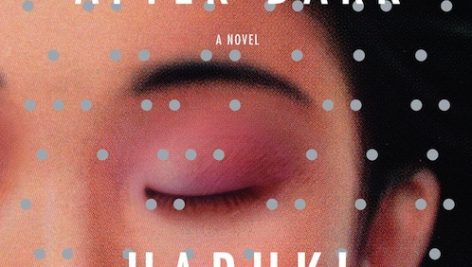
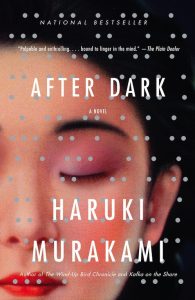
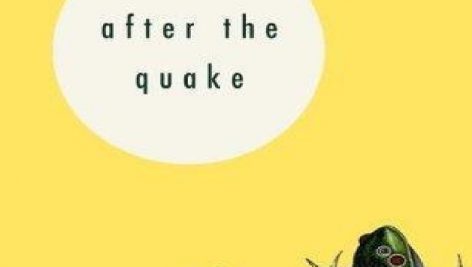


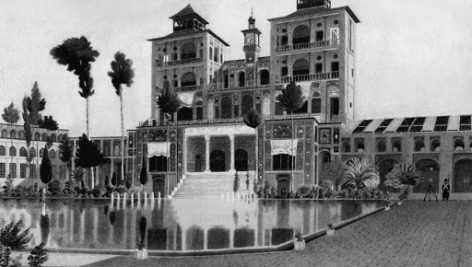




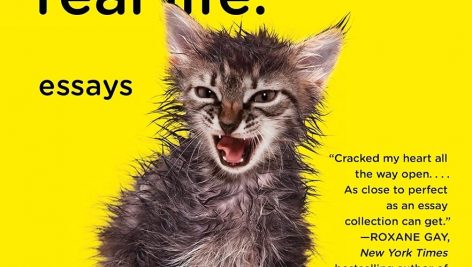
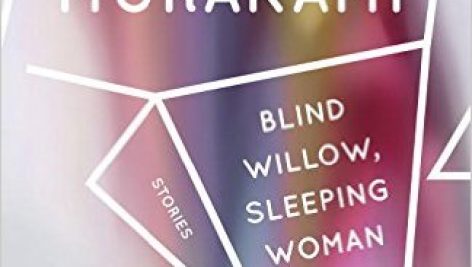
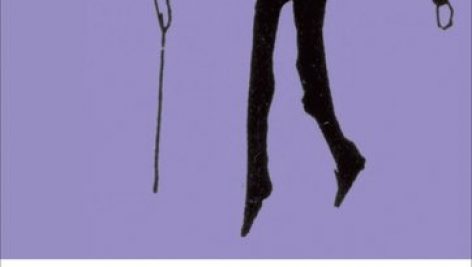


هنوز هیچ نقد و بررسی وجود ندارد.